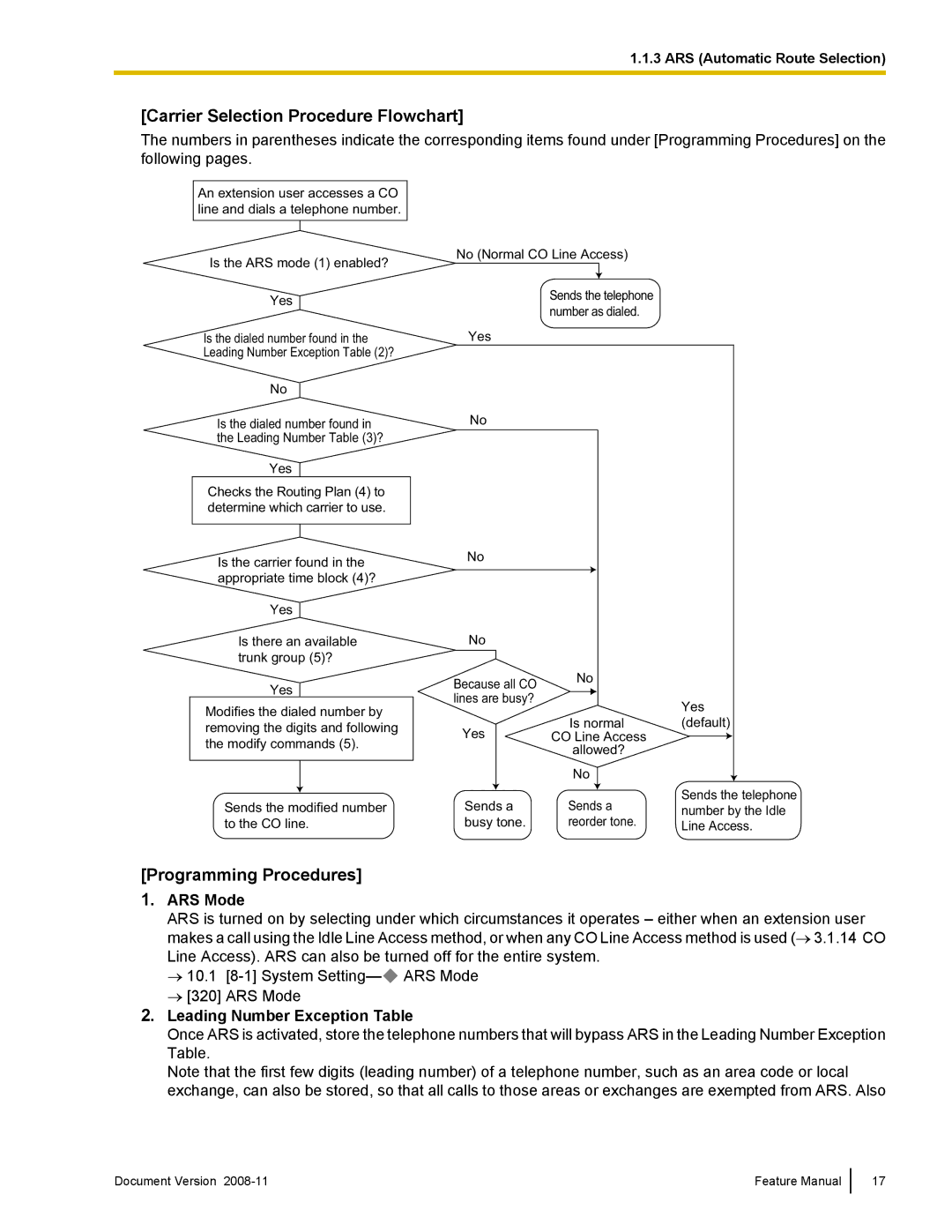
1.1.3 ARS (Automatic Route Selection)
[Carrier Selection Procedure Flowchart]
The numbers in parentheses indicate the corresponding items found under [Programming Procedures] on the following pages.
An extension user accesses a CO line and dials a telephone number.
Is the ARS mode (1) enabled?
Yes
Is the dialed number found in the Leading Number Exception Table (2)?
No
Is the dialed number found in the Leading Number Table (3)?
No (Normal CO Line Access)
Sends the telephone number as dialed.
Yes
No
Yes
Checks the Routing Plan (4) to determine which carrier to use.
Is the carrier found in the appropriate time block (4)?
Yes
Is there an available trunk group (5)?
Yes
Modifies the dialed number by removing the digits and following the modify commands (5).
Sends the modified number to the CO line.
No
No |
|
Because all CO | No |
| |
lines are busy? |
|
Is normal
Yes CO Line Access allowed?
| No |
|
|
|
|
Sends a | Sends a | |
busy tone. | reorder tone. | |
Yes (default)
Sends the telephone number by the Idle Line Access.
[Programming Procedures]
1.ARS Mode
ARS is turned on by selecting under which circumstances it operates – either when an extension user makes a call using the Idle Line Access method, or when any CO Line Access method is used (→ 3.1.14 CO Line Access). ARS can also be turned off for the entire system.
→10.1 ![]() ARS Mode
ARS Mode
→[320] ARS Mode
2.Leading Number Exception Table
Once ARS is activated, store the telephone numbers that will bypass ARS in the Leading Number Exception Table.
Note that the first few digits (leading number) of a telephone number, such as an area code or local exchange, can also be stored, so that all calls to those areas or exchanges are exempted from ARS. Also
Document Version | Feature Manual |
17
